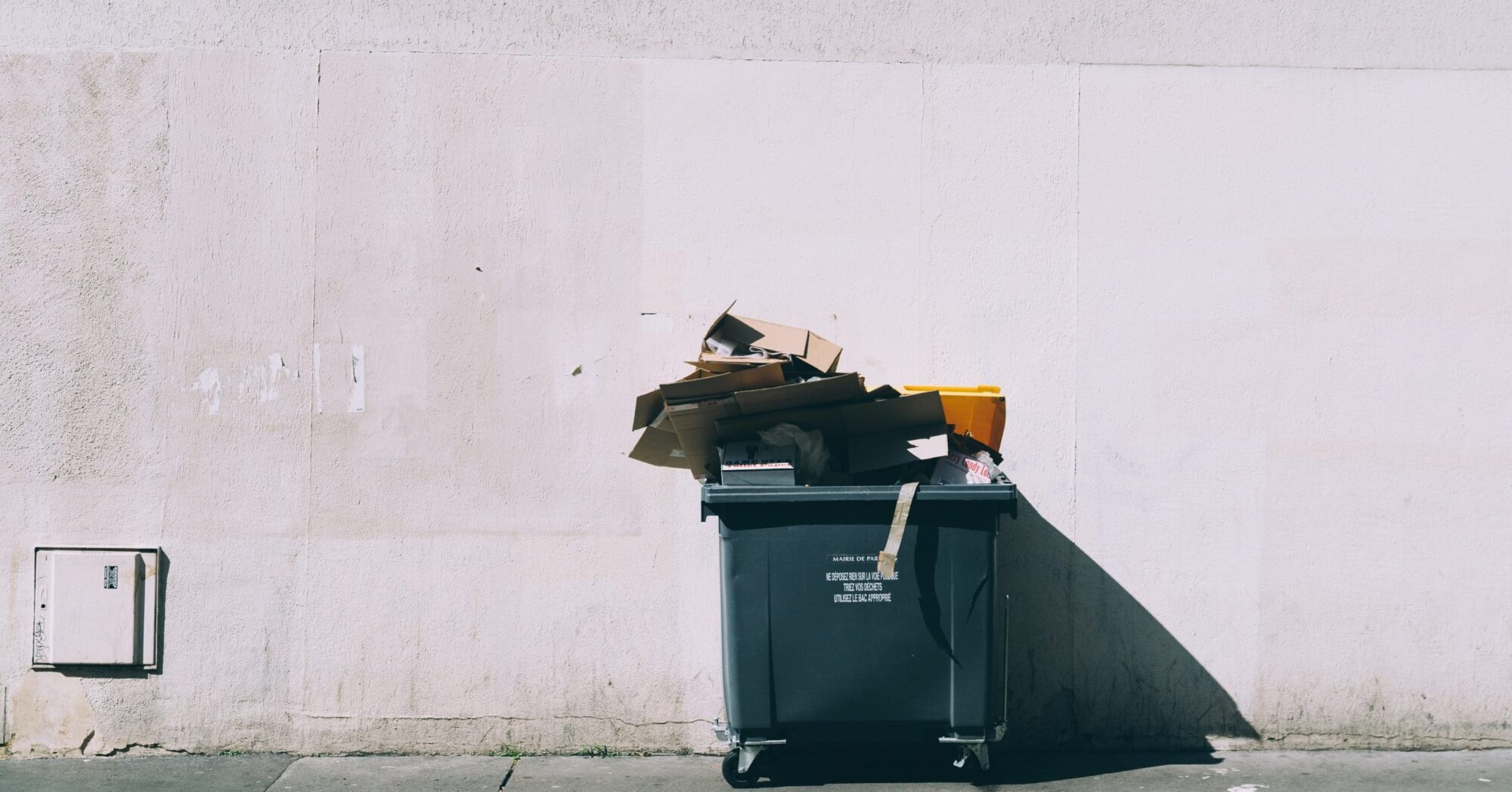Quick Navigation:
- What is the ISO 14001 Certification?
- Why ISO 14001 is Important?
- Requirements for ISO 14001 Certification
- The Role of Waste Management in ISO 14001 Certification
- Begin with a Waste Management Audit
Environmental responsibility is more than just a buzzword; it’s a core value that can define the success and longevity of a business. Companies worldwide are striving to adopt sustainable practices, not only for ethical reasons but also to meet the growing demands of environmentally conscious consumers and stringent regulatory requirements.
One of the essential tools in this pursuit of sustainability is the ISO 14001 certification. While there are various paths to achieving this certification, one often-overlooked avenue is through improving waste management processes. In this article, we will explore what the ISO 14001 certification entails, why it’s crucial for businesses, the requirements for obtaining it, and how enhancing your businesses waste management can be the key to its successful attainment.
What is the ISO 14001 Certification?
ISO 14001 is an internationally recognised standard for environmental management systems (EMS). It provides a framework that organisations can follow to establish and improve their environmental performance continually. Essentially, ISO 14001 is a blueprint for systematically reducing an organisation’s environmental impact while ensuring compliance with relevant environmental laws and regulations.
One of the significant benefits of ISO 14001 is its adaptability to various types of organisations, from manufacturing companies to service providers. It’s a comprehensive approach to environmental management that extends beyond mere compliance, aiming to embed sustainability into an organisation’s DNA.
Why ISO 14001 is Important?
ISO 14001 certification carries significant weight in the business world, and for several compelling reasons:
1. Demonstrating Environmental Responsibility
In an era marked by increasing environmental awareness, consumers, stakeholders, and investors are drawn to businesses that take their environmental responsibilities seriously. ISO 14001 certification is a visible demonstration of a company’s commitment to sustainable practices, which can enhance its reputation and brand value.
2. Expanding Market Opportunities
Many markets and customers, especially those in highly regulated industries or regions, prefer to engage with ISO 14001-certified companies. Certification can open doors to new markets and opportunities that might otherwise remain inaccessible.
3. Ensuring Legal and Regulatory Compliance
Compliance with environmental laws and regulations is a fundamental requirement for any business. ISO 14001 helps organisations stay on top of these requirements, reducing the risk of fines, penalties, and legal disputes.
4. Risk Reduction
Through systematic risk assessment and management, ISO 14001 helps organisations identify and mitigate potential environmental risks. This proactive approach can save a business from the financial and reputational damage associated with environmental incidents.
5. Cost Savings
Efficient resource use and waste reduction are integral parts of ISO 14001. By optimising processes and reducing waste generation, businesses can realise substantial cost savings.
Requirements for ISO 14001 Certification
Obtaining ISO 14001 certification requires organisations to meet specific requirements. These requirements are designed to ensure that an organisation has a robust environmental management system (EMS) in place. Here are the primary requirements:
1. Development of an Environmental Policy and Objectives
Every ISO 14001-compliant organisation must develop an environmental policy that outlines its commitment to taking responsibility for the environmental impacts of its actions. This policy should also include specific environmental objectives, helping to drive continual improvement.
2. Identification of Environmental Aspects and Impacts
Organisations must identify the environmental aspects and impacts of their activities. These aspects can include activities that consume materials, energy, or generate waste. Once identified, organisations should create a scoring system that measures the impact of these aspects on the environment.
3. Establishment of an Environmental Management System (EMS)
An effective EMS is at the heart of ISO 14001. It serves as the framework for identifying, managing, and reducing environmental risks and impacts. The EMS should encompass policies, procedures, roles, responsibilities, and communication processes.
4. Implementation of Operational Controls
Operational controls are essential to ensure that environmental objectives are met. These controls involve documented procedures for activities like waste management, energy use, and emissions control. Competence records should also be maintained for staff handling these controls.
5. Monitoring, Measurement, and Evaluation of Environmental Performance
ISO 14001 requires organisations to establish a system for monitoring, measuring, and evaluating their environmental performance. Regular assessments help track progress and identify areas for improvement.
6. Regular Internal Audits and Management Reviews
Organisations must conduct internal audits to assess their EMS’s effectiveness. Management reviews ensure that the EMS remains aligned with the organisation’s strategic goals.
7. Continual Improvement of Environmental Performance
ISO 14001 emphasises continual improvement. This means that organisations should actively seek opportunities to enhance their environmental performance and reduce their impact on the environment.
The Role of Waste Management in ISO 14001 Certification
While ISO 14001 encompasses various aspects of environmental management, waste management plays a pivotal role in achieving compliance. Waste generation, disposal, and recycling are critical considerations within the realm of environmental management. For many organisations, waste can be a significant environmental aspect, making it a focal point in ISO 14001 certification efforts.
Integrating Waste Management into the EMS
One of the most effective ways to integrate waste management seamlessly into the Environmental Management System (EMS) is by incorporating waste balers into your organisation’s processes. Balers play a crucial role in streamlining waste management processes, reducing environmental impact, and enhancing sustainability. Let’s delve deeper into how balers can contribute to achieving ISO 14001 certification by optimizing waste management processes:
Efficient Waste Compaction
Balers are specialised machines designed to compress waste materials, such as cardboard, plastic, paper, textiles, and soft plastic containers, into compact bales. This compaction significantly reduces the volume of waste generated, making it easier to handle, transport, and store. As a result, your organisation can benefit from reduced waste storage space requirements and fewer waste collections, translating into cost savings.
Reduced Labour Intensity
Handling loose waste materials can be labour-intensive and time-consuming. Balers eliminate much of the manual labour associated with waste management. When strategically placed at the source of waste generation, such as near production lines or in warehouses, balers empower employees to dispose of waste efficiently. This, in turn, frees up your staff’s time and allows them to focus on more critical tasks, ultimately enhancing overall productivity.
Revenue Generation
Balers can turn waste into a valuable asset. For example, compacted cardboard bales are highly sought after by recycling centers, and organisations can earn a rebate for recycling them. The price for recycled materials can vary, but at the time of writing, baled cardboard can yield between £95 and £125 per tonne. By using balers to prepare recyclable materials for sale, your organisation not only contributes to sustainability but also generates additional revenue.
Multi-Material Capabilities
Balers are versatile machines capable of compacting various materials. Depending on the baler’s model, you can use it to bale cardboard, plastic packaging, paper, textiles, and soft plastic containers. Switching between materials is relatively simple – it involves cleaning the baler to prevent waste contamination and loading the new material. This versatility ensures that your organisation can efficiently manage different waste streams, aligning with ISO 14001’s objective of reducing environmental impact across various aspects of operations.
Begin with a Waste Management Audit
If you’re considering ISO 14001 certification or want to enhance your organisation’s environmental management, it’s essential to start with a clear understanding of your current waste management processes and potential areas for improvement. This is where Greenbank can assist you.
Our waste management audit services provide you with valuable insights into your waste streams and offer actionable recommendations for optimisation. By conducting a waste audit, you can identify parts of your waste and recycling processes that can be improved. This includes reducing the cost of labour as employees spend less time on recycling tasks and cutting transportation costs through fewer collections.
Final Thoughts
ISO 14001 certification is not just a certificate to hang on the wall; it’s a powerful tool for embedding sustainability into your organisation’s DNA. Achieving ISO 14001 certification demonstrates your commitment to environmental responsibility, opens doors to new markets, ensures compliance with regulations, reduces risks, and leads to cost savings.
To embark on this sustainability journey, consider optimising your waste management processes. Waste is a significant environmental aspect for many organisations, and efficient waste management can significantly contribute to ISO 14001 accreditation.
By investing in waste management machinery and conducting a waste management audit, you can streamline processes, reduce environmental impact, and move closer to ISO 14001 certification – a milestone that signifies not just compliance but a commitment to a greener future. Start your journey today with Greenbank, and together, we can achieve ISO 14001 certification while making a positive impact on the environment.
Recommended Machinery:




